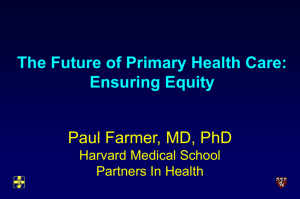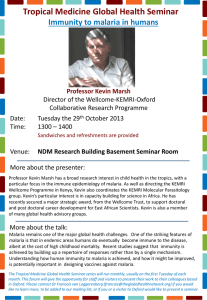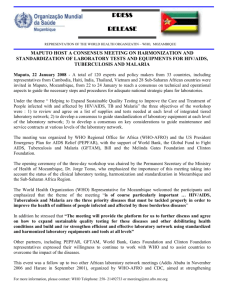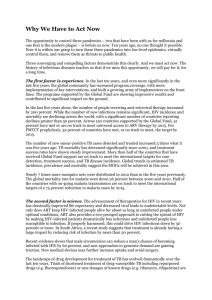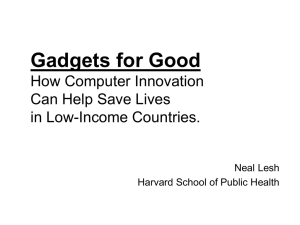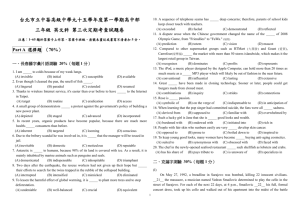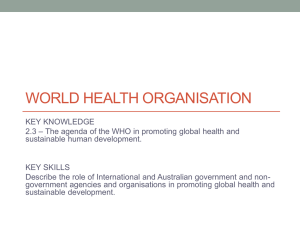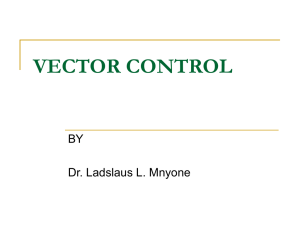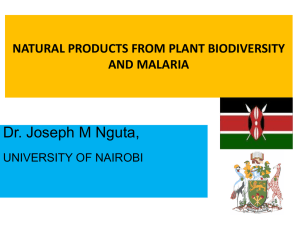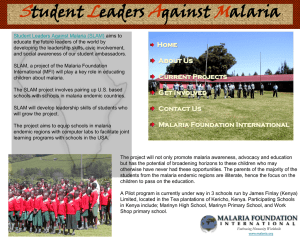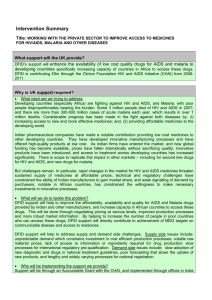Research on HIV, TB and malaria achievements
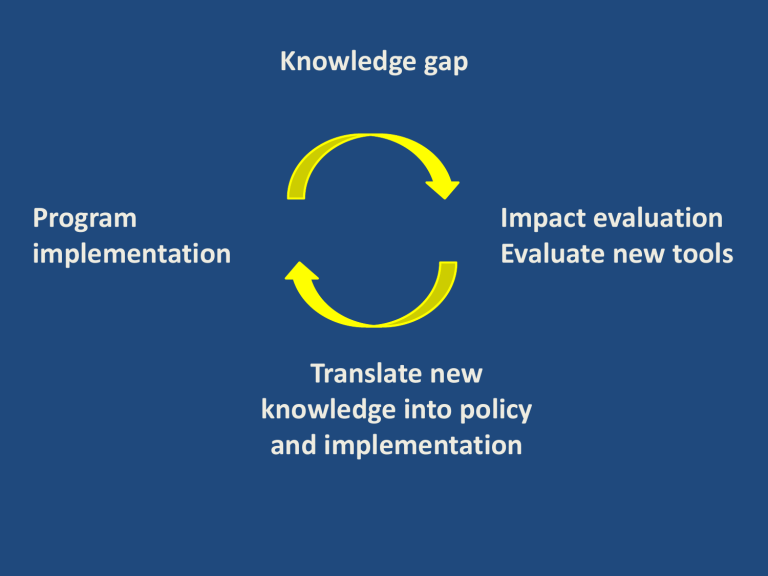
Knowledge gap
Program implementation
Impact evaluation
Evaluate new tools
Translate new knowledge into policy and implementation
Research on HIV, TB and malaria achievements
• Globally, remarkable progress in control of
HIV, TB and malaria in last two decades: millions of lives have been saved
• Progress made possible by research contributions to improved control:
– HIV: discovery of anti-retroviral drugs; demonstrating their impact on transmission
– TB: multidrug regimens, outcome monitoring
– Malaria: ACT, insecticide-treated bed nets
KEMRI & CDC public health and research collaboration since 35 years
1.
2.
3.
Insecticide-treated bed net trial informing global malaria control policy
Kisumu breastfeeding study informing PMTCT guidelines
HPTN 052: transmission impact of ARV: treatment as prevention
1. Lindblade et al JAMA 2004 2. Thomas et al PLoS Med 2011 3. Cohen et al. N Engl J Med 2011
Major challenges research response
• Despite progress, elimination of HIV, TB and malaria as public health threats still far away
• Ambitious sustainable development goals adopted (end epidemics…)
• Priority studies for KEMRI and CDC collaboration:
– Population based studies on maximum impact of current tools
– Clinical studies to evaluate new tools
• Other research priorities:
– New tools development, operational research, social science research
Population based studies impact of current tools
• HIV: population impact of combined interventions in particular diagnosis and treatment
• TB: impact of improved case finding plus improved TB prevention (ART,
LTBI treatment)
• Malaria: feasibility of preelimination in high transmission area
• NTDs: optimum delivery of MDA
100
90
80
70
60
50
40
30
20
10
0
1982 1992 2003 2006 2007 2008 2009 2010 2011 2012 2013
<5 yrs 5-14 yrs >15 yrs
Clinical studies evaluation of new tools
• HIV: PoC diagnostics; various drug trials (ARVs) and prevention trials (e.g. vaginal ring)
• TB: diagnostic platform; various drug trials (e.g. short course preventive therapy, new TB drugs, TB-HIV treatment), vaccine trials
• Malaria: low dose primaquine among children to reduce transmission
• NTDs: PoC diagnostics schistosomiasis
Often multicentre, e.g. ACTG, TBTC
Conclusions
• Research relatively easy to translate into health programs, if this translation is considered in formulating research questions
• Major role for research in accelerating the control of communicable diseases in highburden, low-income settings

